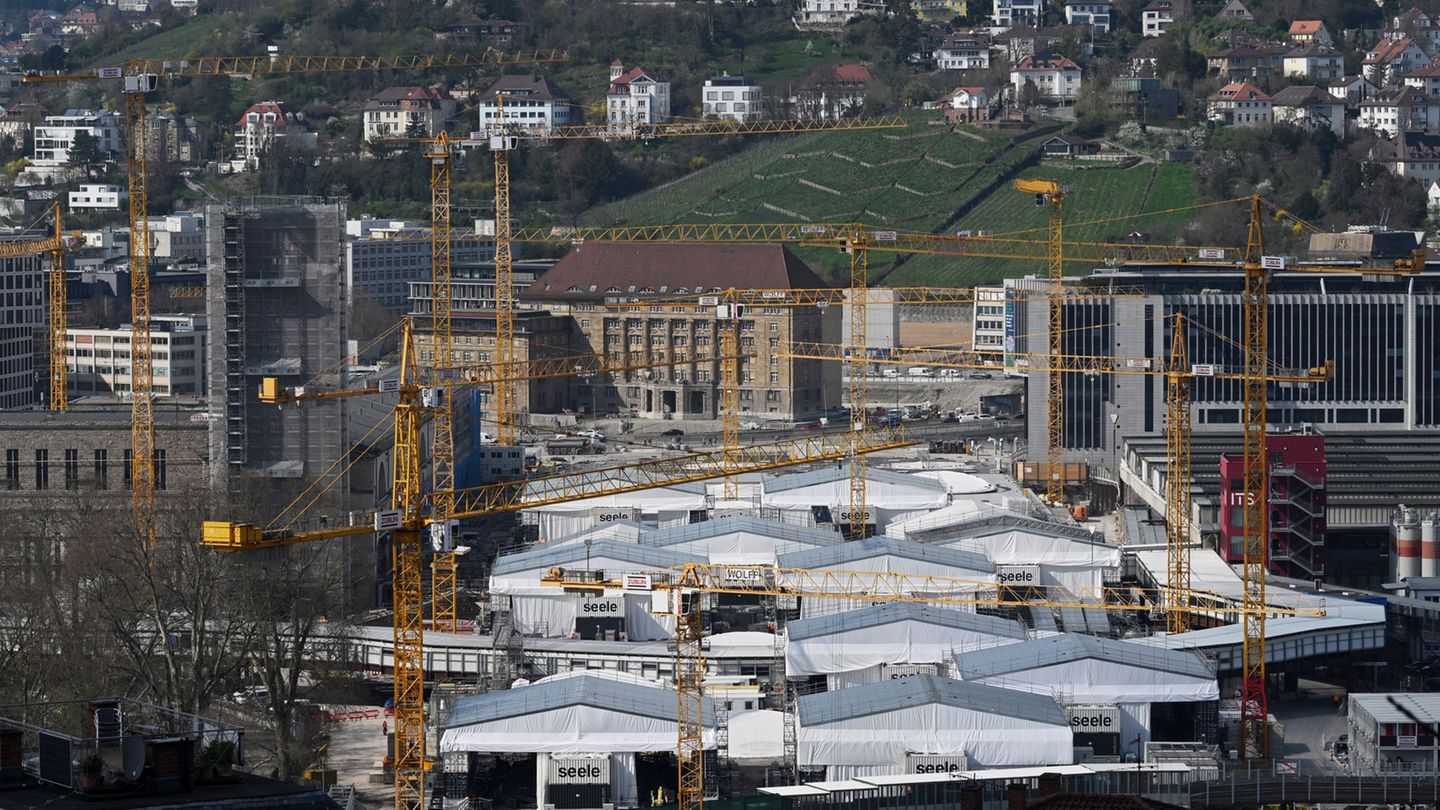Criticism from the Bundestag
This is how the railway earns hundreds of millions – without a single train journey
Copy the current link
Critics complain that railway properties are for sale. Deutsche Bahn has already sold some of them, although they could still be used to expand the railways.
Deutsche Bahn has sold more than 1,500 properties since 2020, earning around 364.4 million euros. The federally owned company plans to sell a further 150 properties this year and an additional 100 next year, as the railway announced in response to a request from the Green Party member of the Bundestag Matthias Gastel. This would bring the company around an additional 75 million euros. The answer is available to the DPA news agency.
In total, the railway would then have sold properties with a size of around 12.8 million square meters or 1,280 hectares between 2020 and 2025.
Green MP: Selling land should not be a business model for Deutsche Bahn
Gastel criticizes the sales. “It should not be a business model for Deutsche Bahn to give up such space,” he said. So far, the group has always spoken of “a few targeted exceptions”. “1,500 cases in just four years speak a different language.”
There is a lot of need for the space. “Companies all over Germany are desperately looking for parking spaces for their trains,” Gastel continued. “In addition, there are efforts in many places to reactivate routes and overloaded nodes need relief.” The fact that the railway is giving away the property on a large scale doesn’t fit.
Redesignating railway areas more difficult
In order to preserve railway land, the federal government made its rezoning much more difficult at the end of last year. Since then, even vacant land has been in the “overriding public interest,” as the General Railway Act states. They can then only be reallocated for other purposes if they are also at this level of interest by law.
The railway’s properties should be preserved for the maintenance and further development of the railway infrastructure. Ultimately, the federal government wants to double the number of rail passengers by 2030 compared to 2015 and significantly increase the share of rail freight transport in the same period. This also requires an expansion of the infrastructure.
New regulations pose difficulties for cities
This new regulation is causing problems for some cities and municipalities when looking for land. For example, the city wants to build a residential area on the vacant track apron at Stuttgart Central Station, which it can no longer do due to the change in the law. The CDU has therefore already spoken out in favor of weakening the rules again.
“With the foreseeable adjustment, it must be ensured that Deutsche Bahn has to significantly adjust its previous behavior,” demanded the Green politician Gastel with a view to the sales of the land.
DPA
km
Source: Stern






